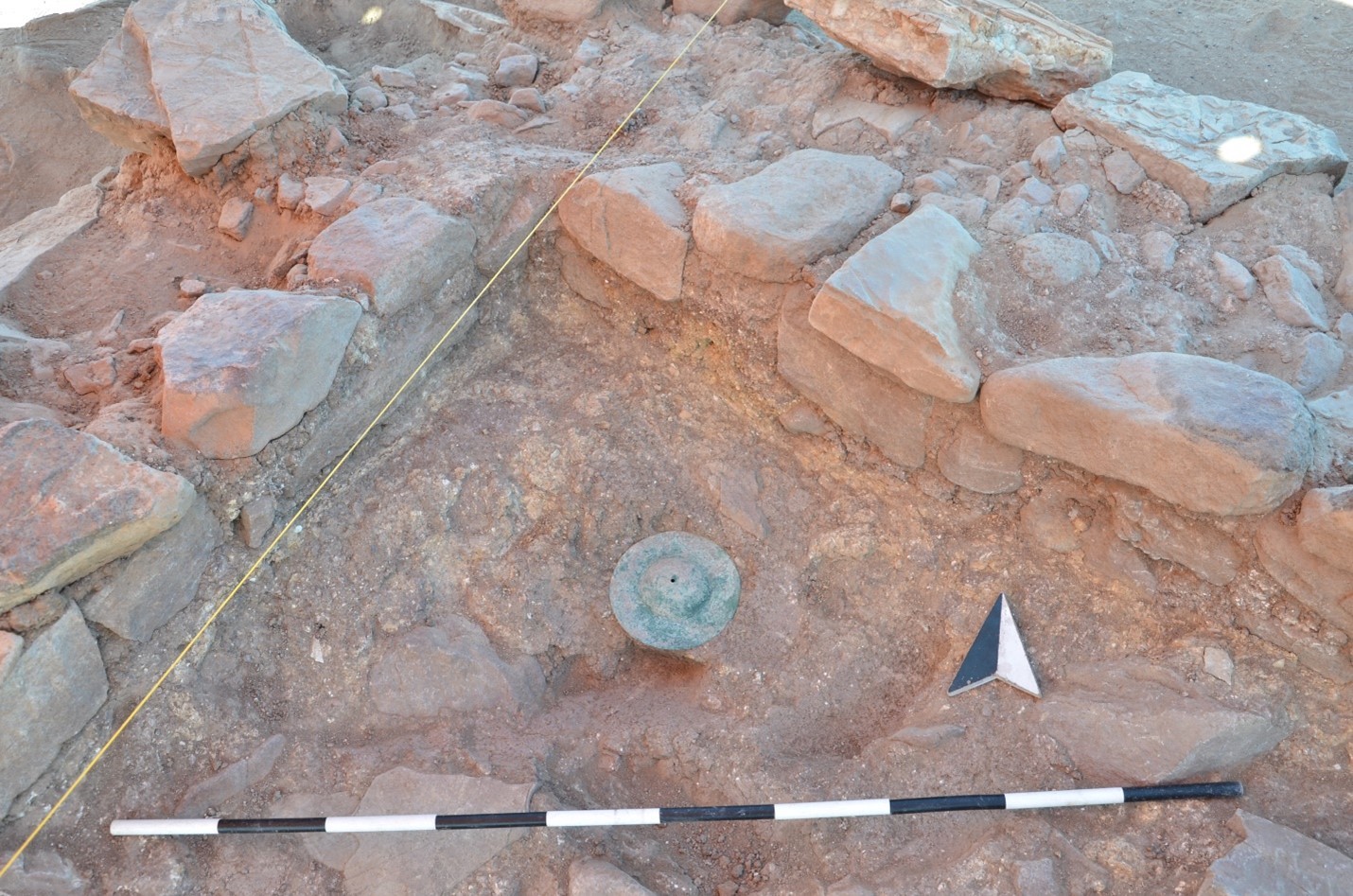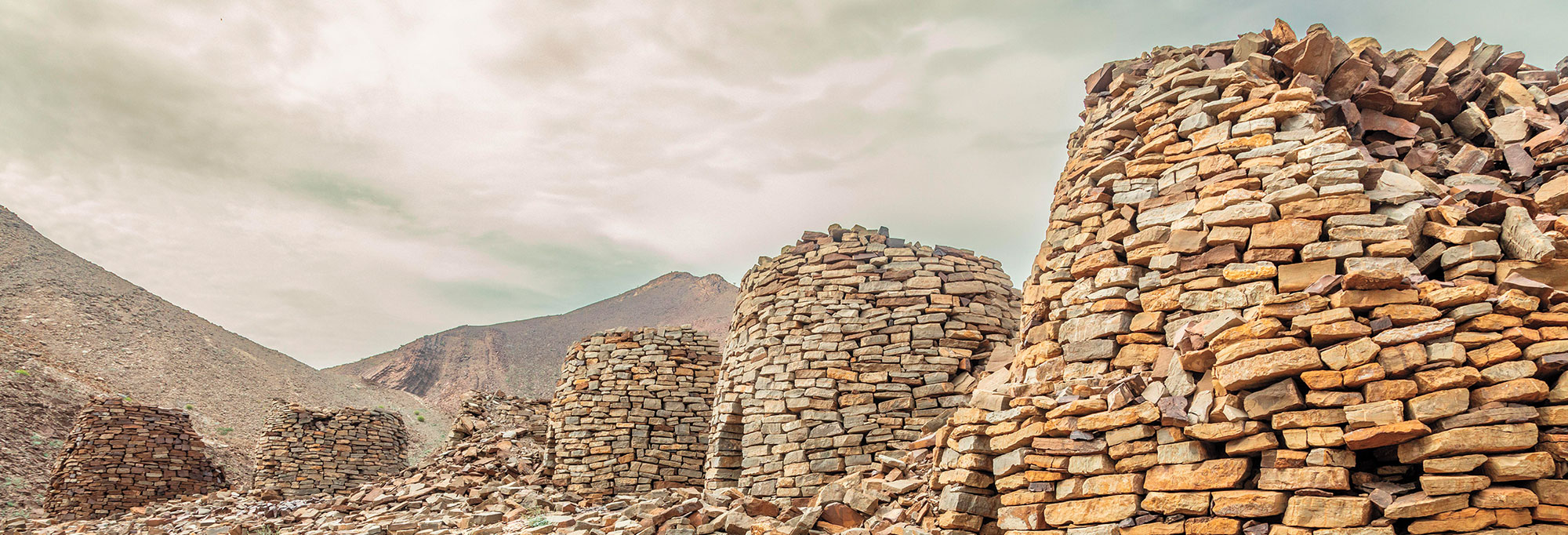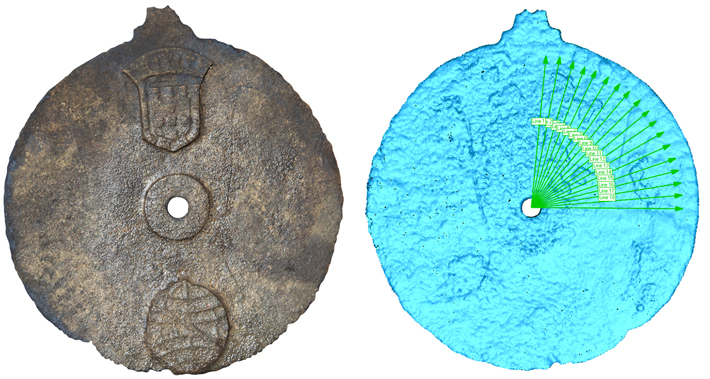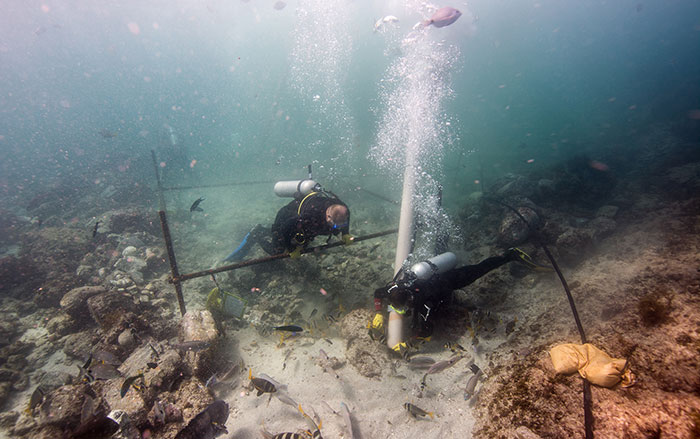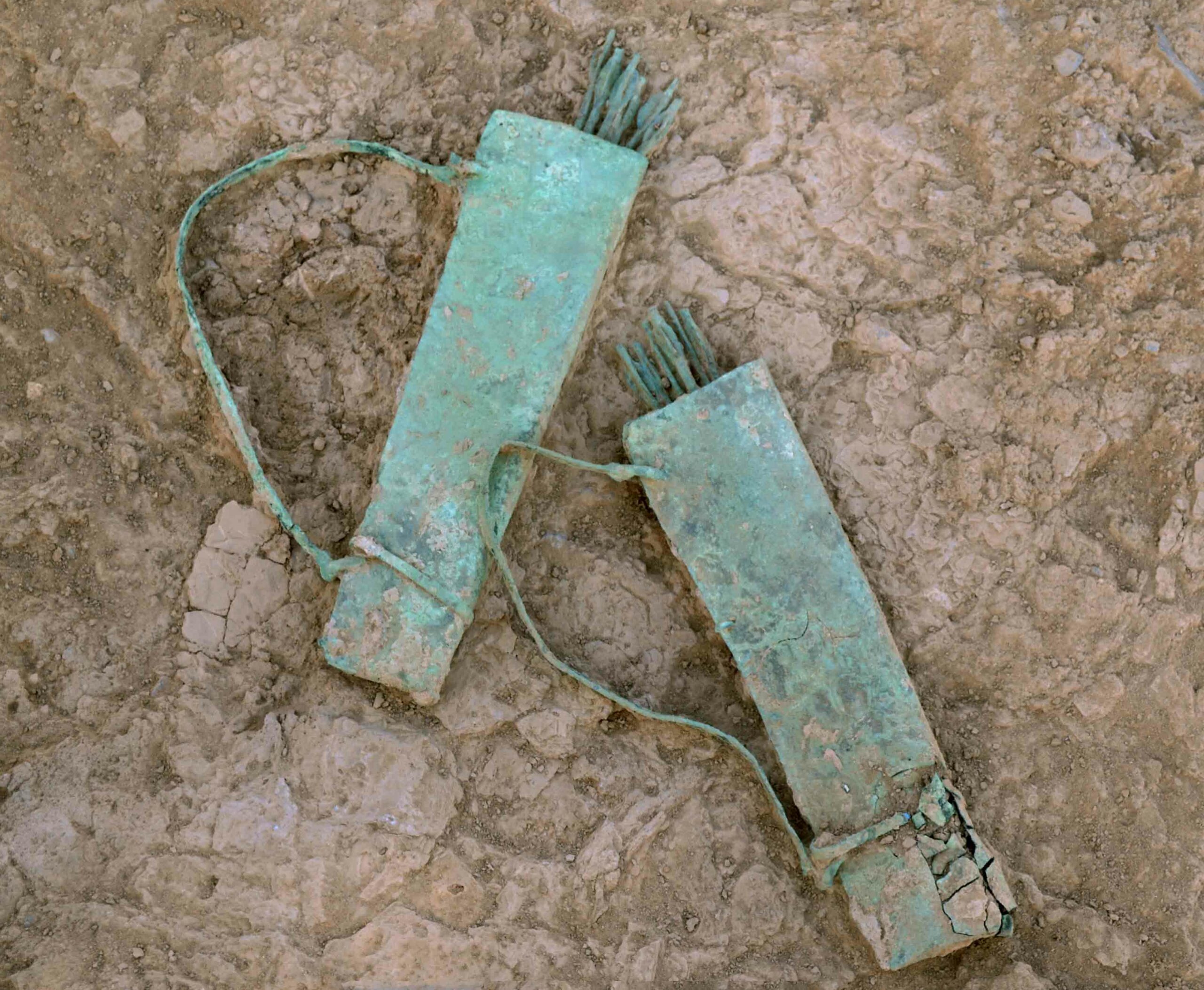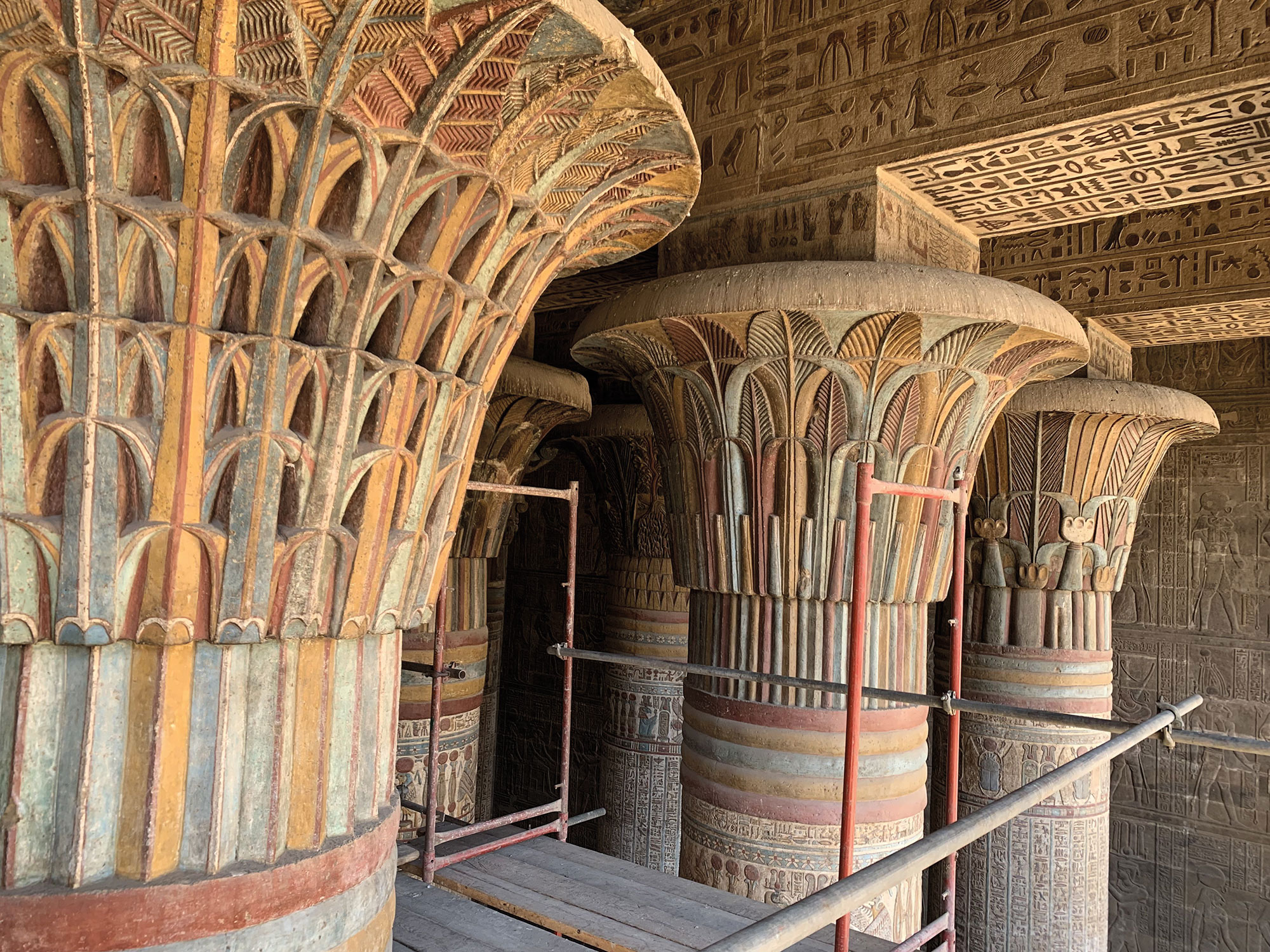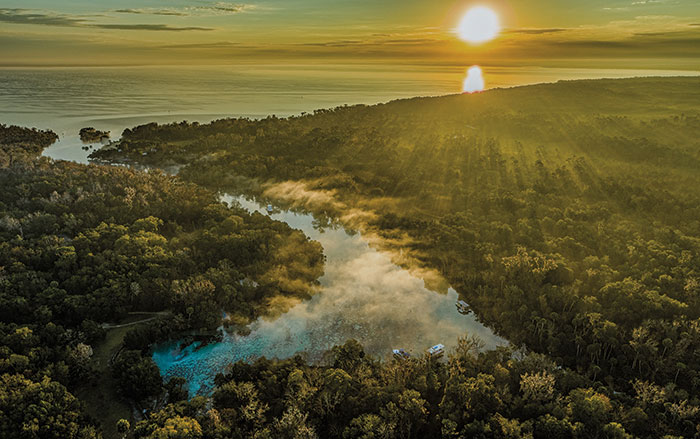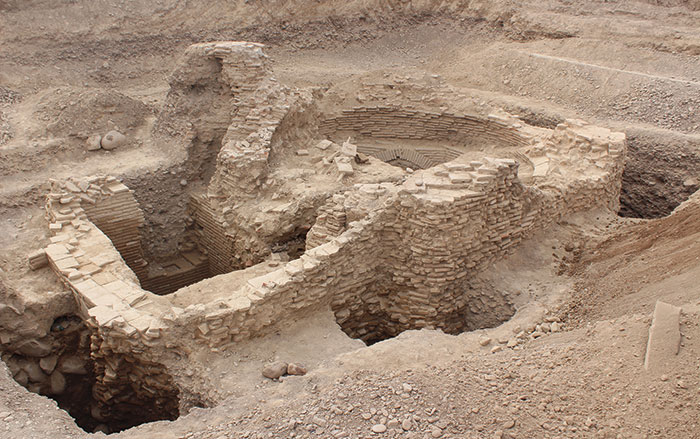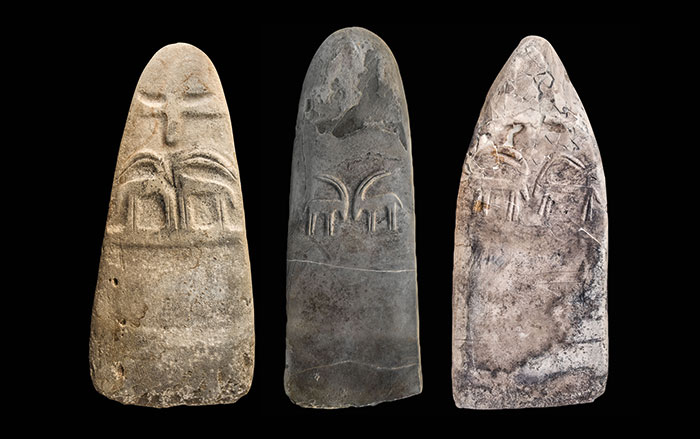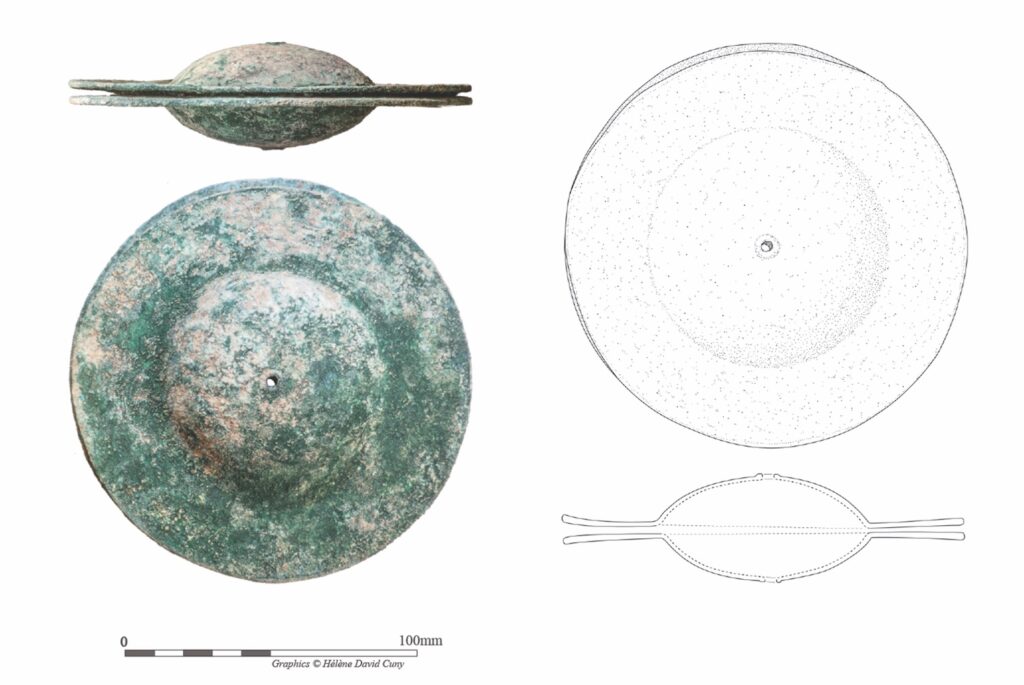
DAHWA, OMAN—Phys.org reports that a pair of rare copper-alloy Bronze Age cymbals were uncovered at a site in Oman. The instrument has highlighted a shared musical connection between ancient cultures on both sides of the Arabian Gulf. “These cymbals are the first of their kind to have been found in good archaeological contexts in Oman and are from a particularly early context that questions some of the assumptions on their origin and development," said archaeologist Khaled Douglas. When the objects were first recovered from a third-millennium b.c. Umm an-Nar culture site in Dahwa, experts recognized their similarity to examples that had been found at contemporary sites in the Indus Valley, in modern-day Pakistan. However, isotope analysis of the copper indicated that the cymbals had been produced locally in the Oman region. Trade around the Arabian Gulf between different cultural groups during the Bronze Age is well attested in the form of ceramics, beads, and other objects. The recent discovery of the cymbals, though, suggests that cross-cultural connections were not solely based on trade. Musical traditions and cultural practices likely flowed between the Arabian Peninsula and Indus Valley as much as materials. Read the original scholarly article about this research in Antiquity. To read about Umm an-Nar women buried in 4,000-year-old monumental tombs, go to "A Place of Their Own."


